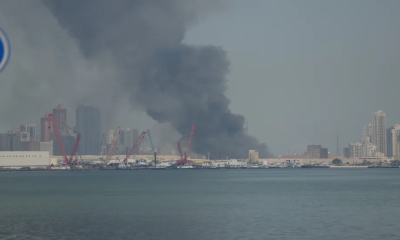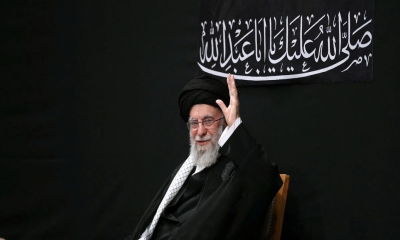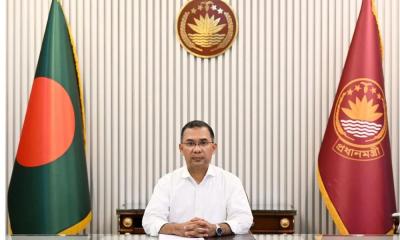The government has started the process of importing fertiliser from Russia as Moscow has agreed to supply 1.2 lakh tonnes of Muriate of Potash (MOP) to Bangladesh via the sea port of a third country, repports The Business Standard.
This amount of fertiliser will possibly be enough to fully meet its demand in the country in the coming season.
The Bangladesh Embassy in Moscow will meet with Russian officials on Wednesday to finalise the payment method and insurance coverage of the fertiliser-carrying ship, sources at the agriculture ministry told the newspaper.
Last year, the government signed an agreement with Russia to import 1.8 lakh tonnes of MOP. Bangladesh had procured 60,000 tonnes of the amount before the Russia-Ukraine war began.
In March this year, the Cabinet Committee on Public Purchase approved a proposal to procure 30,000 tonnes of MOP from Russia amid sanctions imposed by the United States and the European Union on Moscow's trade and financial transactions. But Bangladesh could not import the fertiliser because of the sanctions.
Agriculture Minister Muhammad Abdur Razzaque said that they have started the process to procure the remaining amount of MOP fertilisers as the US announced to lift the sanctions on fertiliser imports from Russia.
"Our ambassador there will hold a meeting with Russian officials tomorrow
to resolve payment-related problems," he noted.Moscow will supply fertiliser using the port of a third country, keeping all the terms of the agreement for MOP imports unchanged. But the fertiliser price may be determined as per international market rates, he also said.
Officials at the agriculture ministry said the annual demand for MOP fertilisers in Bangladesh stands at about eight lakh tonnes, of which about 60% comes from Russia and Belarus. After the US and the EU imposed sanctions on these two countries following Moscow's invasion of Ukraine, Bangladesh took initiative to import fertilisers from other countries, including Canada, risking a possible rise in subsidies on fertilisers.
Prices of fertilisers in Canada are relatively higher and shipping cost is also very high. Yet, the agriculture ministry struck a deal with Canada for procuring 5.5 lakh tonnes of DOP.
But Prime Minister Sheikh Hasina has directed the relevant ministries and departments to figure out a way to import low-cost fertilisers, fuel oil and wheat from Russia to deal with the ongoing dollar crisis.
In view of that, the agriculture ministry has taken the initiative to import the remaining 1.2 lakh tonnes of MOP as per the previous agreement.
The US is now importing fertilisers from Russia. According to a Reuters report, a ship, carrying about 39,000 tonnes of urea ammonium nitrate solution left Russia's St Petersburg for the US.
Neighbouring countries India and China are also importing large quantities of oil from Russia at low prices despite the US sanctions.
Even the EU, which has taken a strong stand for Ukraine in the war, continues to import oil and gas from Russia.
In the meantime, a committee of the Bangladesh government is now analysing a proposal that Moscow placed before it to supply refined oil at a cheaper cost to Bangladesh.
If fuel is procured from Russia, irrigation costs will come down, so will government subsidies on the agriculture sector, say agriculture ministry officials.
The MOP fertiliser is used more in cultivating various vegetables, including potatoes. It is widely used in early potato production with its demand increasing from October onwards, they also say, hoping that it will be possible to import the fertiliser from Russia before that.
Speaking on problems related to fertiliser imports, the agriculture minister said an import LC opening by a local bank needs to be confirmed by banks having international contacts. But global banks, including Standard Chartered and HSBC are not open to transactions with Russian banks.
Moreover, ships are reluctant to enter Russia's ports on the Black Sea because global insurance companies are not providing insurance coverage to ships sailing into the Black Sea, he also said
Agriculture Minister Abdur Razzak called the ambassador of Bangladesh in Moscow to find out the latest information about the import of fertilisers from Russia in the presence of this reporter.
Later, the minister told TBS, "The shipping problem regarding fertiliser imports from Russia is being solved. Russia will supply MOP fertiliser to Bangladesh via any third country."
Besides, the ambassador told the agriculture minister that the process of importing 3.5 lakh tonnes of wheat from Russia is almost final.
Dr Md Abdus Sattar Mandal, a former member of the Planning Commission and former Vice-Chancellor of Bangladesh Agricultural University, believes the reopening of the fertiliser imports from Russia is good news for Bangladesh.
The government was worried over fertiliser stocks as supplies from its major supplier of non-urea fertilisers had got stuck because of the Western sanctions, he noted.
"If we can import fertilisers from Russia at a favourable price, it will definitely give good results for us, there is no doubt about that. It should be ensured that the farmers get fertilisers on time at the price set by the government," he also said.
Apart from MOP, the agriculture ministry also imports TSP and DAP fertilisers for farmers. There are enough stocks of the two fertilisers to meet the demand in the coming season, officials at the ministry said.
The government has eight lakh tonnes of DAP in its stock against the demand for 7.5 lakh tonnes in the next season, while its TSP stock stands at four lakh tonnes as per the demand.
Bangladesh Chemical Industries Corporation under the industries ministry looks after production and imports of urea fertiliser. As Bangladesh cannot meet its entire demand with local production, it imports the rest from the Middle East.
The agriculture minister said that even if the supply of fertilisers can be ensured as per the demand, there is a chance of production disruption owing to low rainfall.
Besides, irrigation is being hampered because of power rationing and a record hike in diesel price, he also said.
The government had contemplated subsidising diesel or giving incentives to farmers with Tk10 account holders for irrigation. Talking about it, the minister said the subsidy for agriculture has already increased a lot. The fertiliser import cost has now shot up to Tk1,100 from Tk250. The agriculture sector now needs about Tk28,000 crore in subsidy.
"Giving incentives for irrigation or a subsidy on diesel is a very complicated process. Such facilities are misused as well. On the other hand, there is already huge subsidy pressure, so for now it is not possible to reduce the price of diesel used for irrigation or to give separate incentives for irrigation," the minister added.













-20260304091720.webp)






-20260303080739.webp)








-20260225072312.webp)





-20260228064648.jpg)
